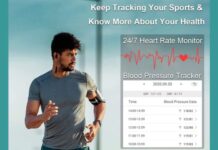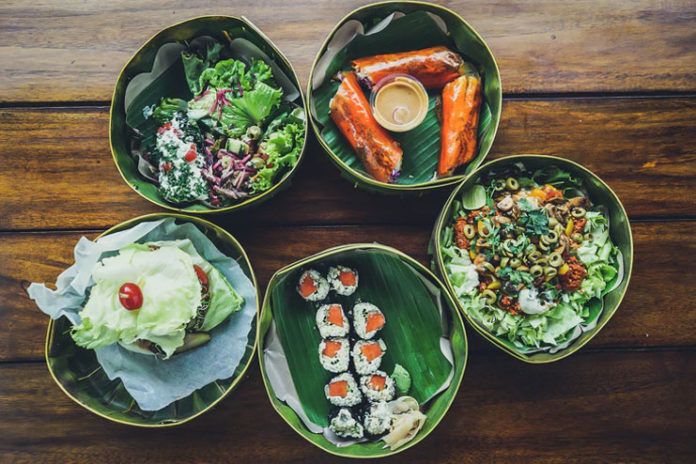Affiliate Disclaimer
Some links in this article are affiliate links. We may earn a small commission if you make a purchase through these links, at no extra cost to you. We only recommend products we find useful to our readersVegan deficiency as the name suggests occurs in those who consume only plant-based or vegetarian foods. Vegan diet Deficiency occurs when a person does not get the nutrition his or her body needs for optimum development from the food they are consuming. Veganism is an adopted lifestyle, mainly by those who believe that vegetarian foods are healthy, cuts heat diseases risk, lowers risk of cancer and is also in general, an ethical way of life.
The year 2019, was declared by The Economist, as the “Year of the Vegans”. Vegans don’t always identify themselves as vegans, because they have diverse food habits, some are lacto-ovo vegetarians who eat dairy products but not animals’ meat. Others completely depend on plant-based items like raw fruits, vegetables, legumes, sprouts, and nuts. And then there are fruitarians and flexitarians who occasionally eat meat.
According to the most recent research 14 per cent of the world population is vegan. On a supervised plant-based diet may be healthy. Vegan diet deficiency generally have lower triglycerides, glucose levels, blood pressure, and body mass index (BMI). Bodyweight and amount of exercise tend to affect mortality rates in the vegetarians researchers say.
Common vegan deficiencies are Vitamin B12, Vitamin D, folate, Vitamin E, Calcium, Iron, choline, Zinc, Creatine, Carnosine, Vitamin D3 (Cholecalciferol) , Docosahexaenoic acid (DHA), Heme iron and Taurine.-because these are nutrients you cannot get from plants. There are many supplements for vegan deficiency one can take. This article lays down ways to overcome vegan deficiency and nutrient deficiencies on a plant based diet.
Why do these vegan deficiencies occur?
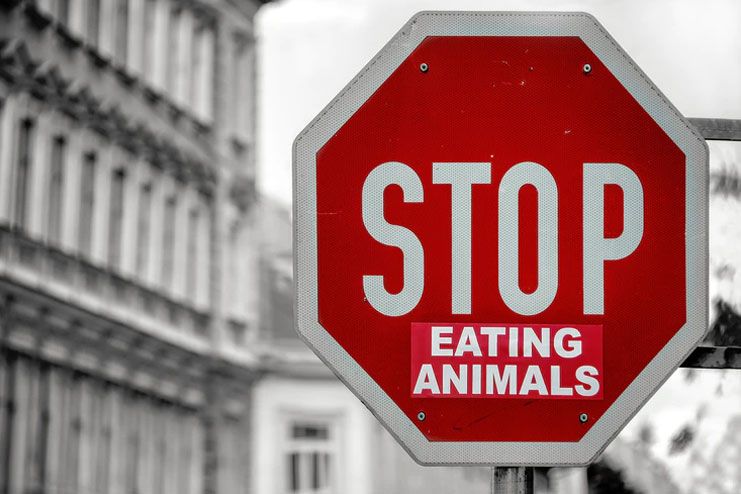 Vegan diet can be inadequate if you are not mindful of what you are eating. Those who adopt a vegan diet either do it because they listen in the news that it is good for the environment, or that they will get all plant-based nutrients while on a weight loss mission. But it is important to understand that body goes through a tremendous change when we suddenly change our lifestyle. Many people adopt vegan diets when they know it is simply not sustainable for them in long-term.
Vegan diet can be inadequate if you are not mindful of what you are eating. Those who adopt a vegan diet either do it because they listen in the news that it is good for the environment, or that they will get all plant-based nutrients while on a weight loss mission. But it is important to understand that body goes through a tremendous change when we suddenly change our lifestyle. Many people adopt vegan diets when they know it is simply not sustainable for them in long-term.
Experts suggest that vegan diets should not be based on the attitude of cutting meat from the diet but making sure that they are consuming not just leafs, but plant-based whole foods. On the other hand, if you are turning vegan only to lose weight, it’s not a good plan. Fluctuating biological clocks have long-term impacts on health. People who change to a vegan diet after consuming meat for several years often face physical challenges while adopting the new lifestyle. They unfortunately fall into an eating disorder which has to be medically treated. A vegan diet should be supervised by a nutritionist.
A diet should contain whole food groups as it contributes full nutrients necessities. People who practice a vegan diet for a long time have vitamin B12 deficiency. Direct studies of vegans show to be inadequate include human gut bacteria, spirulina, dried nori, barley grass and most other seaweeds. Several studies of raw food vegans have shown that raw food offers no special protection. Vitamin B12 supplements that now Amazon stocks, the best buy is Now Foods’ 2000 microgram cyanocobalamin lozenges. One bottle of Vitamin B12 supplement comes in under $10 and includes the cyanocobalamin molecule.
This is how you can avoid vegan diet deficiencies
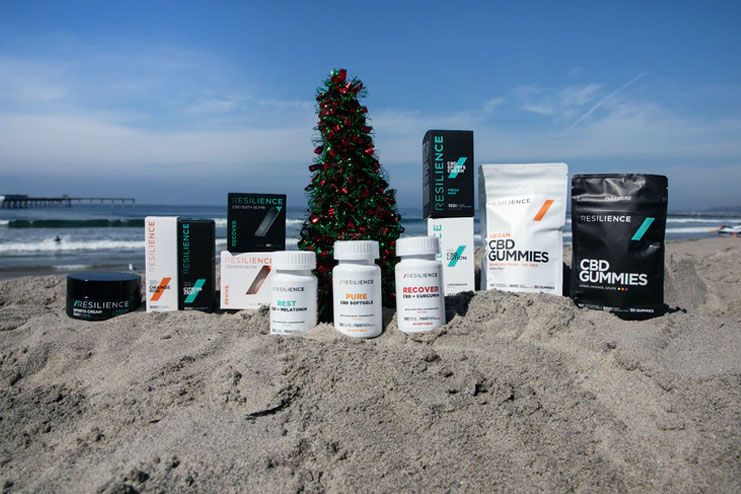 When you are on a vegan diet or going to begin a diet for a long time you should start by learning about the nutrients required and how to obtain them. It is important to get some tips and recipes from vegetarian websites, a local health food shop, or a nutritionist. You will be making a weekly shopping and meal plan. Focusing on a variety of meat-free dishes that provide complete protein intake. You should consider making the change gradually, for example, over a month. Another important start is with familiar meat-free foods, such as mac and cheese and salad, and adds to your repertoire over time.
When you are on a vegan diet or going to begin a diet for a long time you should start by learning about the nutrients required and how to obtain them. It is important to get some tips and recipes from vegetarian websites, a local health food shop, or a nutritionist. You will be making a weekly shopping and meal plan. Focusing on a variety of meat-free dishes that provide complete protein intake. You should consider making the change gradually, for example, over a month. Another important start is with familiar meat-free foods, such as mac and cheese and salad, and adds to your repertoire over time.
Menopausal women face iron deficiencies if they are following a vegan diet. Iron deficiency causes fatigue and pale skin, weakness, and headaches can also be signs of iron deficiency. According to the World Health Organization says oral food supplements rather than fortified foods such as salt, potatoes, carrots, etc. are strictly recommended in vegans.
It is also noted that children of vegan mothers have lack of nutrients. They usually lack protein in quantity and quality, iron, zinc, selenium, calcium, riboflavin, vitamins A, D, B12 and essential fatty acids. Experts say that vegan diets should not be adopted by children without supervision of a nutritionist or a dietician.
In children, Vitamin B12 deficiency is not diagnosable and causes challenges to doctors at a later stage. Doctors have found that children have high homocysteine (Hcyst) or methylmalonic acid (MMA) in serum or urine. Treatment with oral supplements balances vitamin B12 deficiency in 3 to 4 months. According to the National Health Service (NHS) adults need around 1.5 micrograms of vitamin B12 per day. The best sources of Vitamin B12 are: Nutritional yeast, yeast spreads such as marmite, fortified soy and almond milks and fortified cereals.
Minerals we need to take for Vegan Diet Deficiency:
Folate deficiency causes anemia and can be avoided by taking lentils, beans, peas, dark, green leafy vegetables such as spinach or kale, asparagus, broccoli and avocados. Fruits such as bananas, mangos and oranges and nuts and seeds such as walnuts, chia seeds and linseed are good sources of folate.
Vitamin D deficiency is the most common deficiency in the world. Around 24 percent people are vitamin D deficient . It leads to hair loss, irritability, fatigue, muscle pain, recurrent infections, bone pain. The NHS recommends that adults take 10 micrograms of vitamin D a day.
Calcium is essential for children and women around the time of menopause. According to NHS adults aged 19 to 64 need 700mg of calcium a day. Yogurt, milk, cheese, tofu, fortified orange juice, kale, turnip greens, and broccoli are good sources of calcium.
Proteins provide energy and vegetable sources may not contain complete protein, so people should ensure they get enough of all types of protein throughout the day. That is why body-weight becomes a problem for vegan people in older age. Eggs, milk, soy milk, nuts, nut butters, seeds, pulses, and cereals are good supplies of proteins. According to Food and Agricultural Organisation (FAO) for children, somewhat narrower ranges have been adopted. Even so, they embrace a very wide span of body weights. For example, for boys 3–5 years old, the acceptable range of body weight extends from 12 kg (3 years, 5th centile) to 23 kg (5 years, 95th centile).
Zinc is very important for catalytic activity of approximately 100 enzymes and it plays a role in immune function, protein synthesis, wound healing, DNA synthesis, and cell division. According to the National Institutes of Health (NHS) requirements of Zinc for breasfeeding mothers and teens is 11- 13 mg and general adults is 8 to 11 mg.
According to the NHS Office of Dietary Supplements, oysters, red meat, poultry, seafood such as crab and lobsters, and fortified breakfast cereals are also good sources of zinc. For vegans beans, nuts, whole grains, and dairy products, which provide some zinc.
Iodine deficiency can cause neurological damage. The body needs iodine to make thyroid hormones. According to NHS the per day requirement of zinc is 150 mcg in adults.
Good sources of zinc are seaweed, yogurt, milk, cheese, enriched bread, enriched macaroni, prunes, lima beans, apple juice, green peas, and bananas.
10 Supplements needed to overcome Vegan Deficiency?
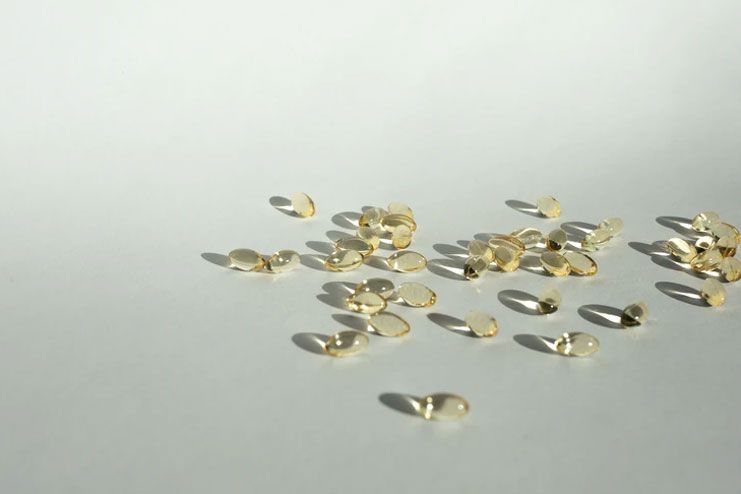 1. Vitamin B12-
1. Vitamin B12-
B12 absorption is inversely related to its dosage, she says. The recommended daily allowance is 2.4 micrograms, this is with the assumption that some B12 is being obtained from food.
Average daily recommendation: 2.4 micrograms
Read: Vitamin B12 Benefits And Side Effects 2. Vitamin D-
2. Vitamin D-
Vitamin D is helpful in maintaining strong bones and plays an important role in bolstering your immune system. Yeast and mushrooms are sources of Vitamin D. Vitamin D2 and D3 are helpful in raising vitamin D levels in the blood.
Average daily recommendation: 600 International Units
Read: Vitamin D Deficiency – Causes, Symptoms, Diseases And Treatment
 3. Calcium:
3. Calcium:
Calcium helps you recover properly after high-intensity exercise and endurance events in the short-term as well as prevent osteoporosis in the long-term. Cow’s milk has more biological calcium than, say, broccoli, but it’s easier for our bodies to absorb the calcium from these plants. That’s not the case for all plants. Calcium is found in high-oxalate vegetables such as spinach that allow for little to be absorbed by your body.
Average daily recommendation: 1,000mg
 4. Beta-carotene –
4. Beta-carotene –
Carrots, tomatoes, sweet potatoes, cantaloupe, and winter squash, and green leafy fruits and vegetables like spinach, lettuce, and broccoli are good sources of Beta Carotene, according to the University of Maryland Medical Center. Remember that more intense the color, the more beta-carotene the supplement has. To take the supplement: just take with meals containing at least 3g of fat to ensure absorption since they’re fat-soluble.
Average daily recommendation: 10,000 International Units
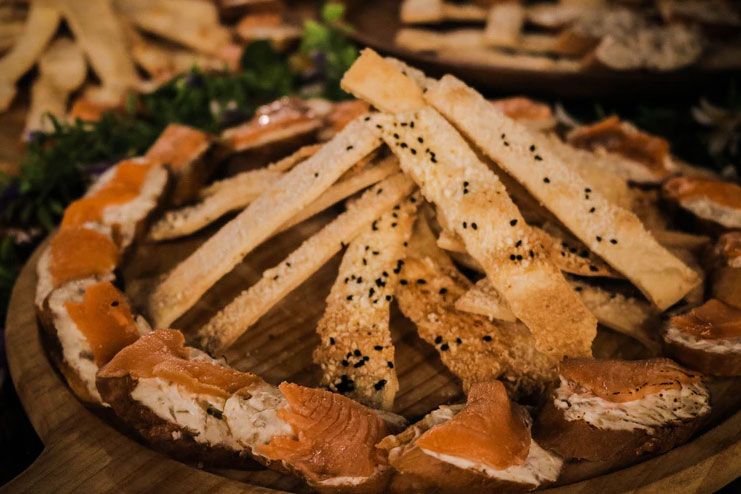 5. Selenium –
5. Selenium –
Selenium helps in building great bone mineral density. Breastfeeding mothers should take some amount of selenium in their diet. It plays a crucial role in the working of the immune system, thyroid function and reproduction and helps to form protective antioxidants which can prevent damage to cells and tissues.
Selenium deficiency can increase the risk of infection and disease and is needed against a number of neurodegenerative diseases. It is one of the vegan diet deficiency can cause reproductive problems, including male and female infertility, miscarriage, preeclampsia, foetal growth restriction (undersized unborn baby), premature labor, gestational diabetes and obstetric cholestasis (a liver disorder that can occur in pregnancy). Breads, cereals, and other grains contain selenium according to the NIH.
Average daily recommendation: 55mcg
 6. Iodine:
6. Iodine:
80% of vegans suffer from iodine deficiency. Iodine is required in making thyroid hormones. This determines how fast our cells work. Iodine is present in wholegrains, green beans, courgettes, kale, spring greens, watercress, strawberries and organic potatoes with skin. Extra salt intake.
Average daily recommendation: 150mcg
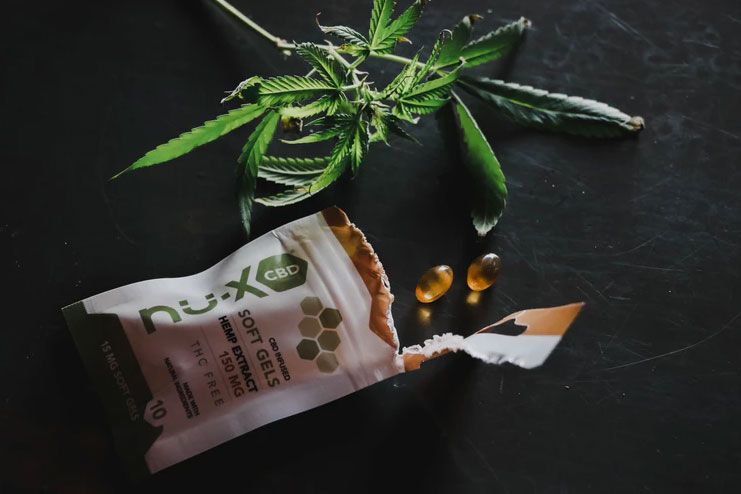 7. Omega-3:
7. Omega-3:
Chia seeds are known for their many health benefits, bringing a hefty dose of fiber and protein with each serving. Brussels Sprouts, algal oil, hemp seed, walnuts, flaxseeds and perilla oil contain great amounts of omega 3.According to the NIH, the FDA have suggested that people should take no more than 3 g per day of DHA and EPA combined. It can help reduce belly fat. Omega 3 supplements with doctors advice can be taken once a day for a healthy individual.
Average daily recommendation: EPA and DHA intake of .3-.5g.
 8. Iron-
8. Iron-
Iron supplements boost haemoglobin formation. Prune juice has high iron content which contain many nutrients that can contribute to good health. Leafy greens like spinach, kale, swiss chard, collard and beet greens are also good sources. Tomato paste, potatoes, mushrooms, palm hearts have a great dose of iron in them. Iron-fortified cereals and breads, white beans, lentils, spinach, kidney beans, peas, nuts, and raisins contain iron according to the NIH.
Average daily recommendation (adult men 19–50): 8mg
 9. Zinc:
9. Zinc:
Legumes like lentils, beans, and chickpeas—are high in protein and important vitamins and minerals like zinc. Nuts, seeds, oats, tofu have zinc in them. Zinc is a mineral that’s crucial for metabolism, immune function, and the repair of body cells. Itd deficiency can cause developmental problems, hair loss, diarrhea, and delayed wound healing. Immunosuppressant medications should not be taken along with zinc medications. Fortified cereals, beans, nuts, and whole grains as supplements are a good choice here.
Average daily recommendation (adult men): 11mg
 10. Pea protein powder:
10. Pea protein powder:
This will help a vegan meet their protein goals without having too much carbs. One can stir it into an oatmeal, wheat porridge or brown rice cereal. It also reduces inflammation. Protein powder is a good source of iron and carbohydrate. Its a natural remedy against high blood pressure and chronic kidney disease (CKD). Protein powder supplements may increase flatulence. Plant-based protein powders like pea protein help you build muscle just like any other whey-based powder. You can pair this with another protein source like beans to make a complete protein.
Average per day consumption to be taken on advice of a nutritionist or dietician.
Tips for balanced Nutrition Vegan diet?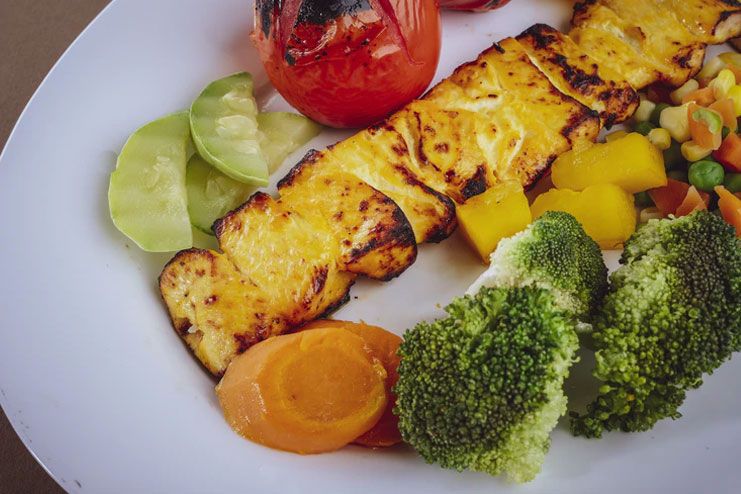 Fruits and vegetables every day- 5 portions
Fruits and vegetables every day- 5 portions
- Dairy products have to be replaced with supplements such as soya drinks/milk
- Include plant-based proteins into the diet like beans, pulses
- Include starchy carbohydrates like potatoes, pasta and rice as the base of your meals
- Drink 6-8 glasses of water/fluid per day to keep yourself hydrated.
Conclusion
Vegan diet has become very popular and is gaining a lot of support especially by environmentalists. However, the diet is does have benefits like low risks of heart diseases and cancer. There are vegan deficiencies that are extremely dangerous for a healthy living. This article contains most of he required vegan deficiency supplements and nutrient deficiencies in vegan diet to help those who are planning to start with a vegan diet or are facing physiological issues in their vegan diet.
Recommended:
- Did You Know That Diet Plays A Key Role In Anemia?
- What Happens When You Stop Eating Meat? 14 Proven Benefits!
- Easy Guide To Start Vegan Diet For A Week- Make It Simpler
In this Article









